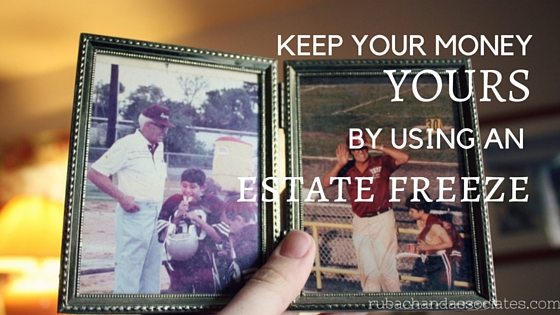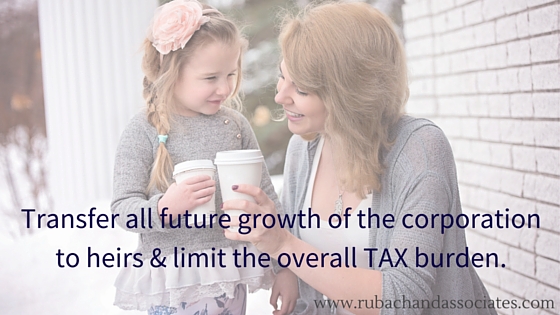If you were to die yesterday, what would happen to your assets?
If you’re unsure of the answer to that question, you are not alone. Most Canadians are aware that they need a will with clear direction on where their assets should go upon death. But how to maximize the inheritance left for your loved ones is still a mystery to many.
We will explore the fundamentals on where to start to implement an estate freeze that’ll limit taxes and ensure assets are allocated properly.
CREATING A WILL
Creating a will is the easy part. To properly create a will and put together a comprehensive estate plan, you should visit an estate lawyer. It is important to visit a professional in order to ensure your directions are clear at time of death. While it may be tempting to do-it-yourself, a lawyer will ensure all of your assets go exactly where you want them to go and also provide valuable advice, especially regarding topics and those ‘what if’s’ most of us don’t want think about.
An estate lawyer will ensure a plan is in place for the guardianship of your children and outline the distribution of your wealth.
HOW TO KEEP YOUR MONEY YOURS
Unlike other countries, there is no inheritance tax in Canada. Your assets roll over to your beneficiaries tax-free. However, many people do not realize that due to the deemed disposition rules of the Income Tax Act of Canada, if you do not have a spouse to leave your belongings to at death, your assets will be disposed of at fair market value (note that you can roll over assets to your spouse tax-free). In other words, you will pay tax on capital gains made on your investments or properties. [tweet_dis excerpt=”Eg. on how your assets will be #taxes without an #estatefreeze via @rubachandassoc”]If your assets have grown in value since you earned them, you may have to pay income tax on the taxable part.[/tweet_dis]
Let’s assume you own shares in a private company that have a current valuation of $50,000. When you obtained these shares, the approximate value was $25,000. Upon death, Revenue Canada will deem these shares as “sold” at the current fair market value. So, if your marginal tax rate is 45%, your estate would pay 45% of half of the capital gained on the shares or $5,625.
To avoid paying tax on assets that may appreciate in value over time (such as shares in a private company), consider an estate freeze. Put simply, an estate freeze means locking in the current value (and tax owed) that you would be liable to pay upon death. This technique can be especially beneficial for owners of a private company, where a large part of their net worth comes from the shares of the corporation.
An estate freeze can help transfer all future growth of the corporation to heirs and limit the overall tax burden at death.
IMPLEMENTING AN ESTATE FREEZE
The easiest way to implement an estate freeze is to exchange the common shares (growth shares) for new preferred shares that are fixed in value. These preferred shares will not appreciate in value, rather their worth will remain frozen. You can issue new common shares that will be placed in a family trust for your children or heirs and direct future growth of the company to accumulate in these new shares. In the future, this money may be able to be distributed to your children tax-free. Other options, such as creating a new holding company for these shares, are also possible to achieve tax deferment.
[tweet_dis excerpt=”Implementing an #estatefreeze won’t eliminate tax but will limit it & offers other benefits via @rubachandassoc”]Implementing an estate freeze will not eliminate tax[/tweet_dis] that has accrued to date on your assets. However, a well-timed estate freeze will limit the amount of tax you need to pay in the future and ensure your assets are largely left intact for your family, rather than for the government.
An estate freeze can be a beneficial, albeit complex transaction, that is best utilized under the guidance of an experienced lawyer and tax accountant.




